While all honey shares certain characteristics, not all honey is created equal. Among the many types, Australian Manuka honey stands out as a unique variety that has captured the attention of gourmets and health enthusiasts alike.
What sets Australian Manuka honey apart from regular table honey? Let's dive into its distinctive taste, texture, and more.
The Origins of Australian Manuka Honey
Manuka honey is derived from the nectar of the Leptospermum tree, commonly known as the Manuka tree, which is Native to Australia and New Zealand. The diverse flora and pristine environment contribute to the exceptional quality of our Australian Manuka honey. The wide variety of the leptospermum species in Australia is the reason that we have the highest strength Manuka honey in the world. The super high strength Manuka Honey is extremely rare, and as it is a product directly from nature, colour and flavour variations can occur.
Taste: A Symphony of Flavors
The taste of Australian Manuka honey is truly unique. Unlike the mild and straightforward sweetness of regular table honey, Manuka honey offers a complex flavour profile.
- Rich and Robust: Manuka honey has a strong, earthy flavour which has depth. This robustness makes it a favourite for those who appreciate more than just sweetness in their honey. Some say that it has a caramel like flavour whilst others find a slight bitterness to be present.
- Herbal Undertones: There's a distinct herbal note, often described as slightly medicinal, which reflects the honey's natural origins and the properties of the Manuka tree.
- Lingering Aftertaste: The taste of Manuka honey lingers on the palate longer than regular honey, offering a multi-layered tasting experience that evolves from sweet to savory.
This intricate flavour makes Manuka honey a versatile ingredient in both sweet and savory dishes, enhancing everything from teas and desserts to glazes and marinades.
Check out our delicious Manuka honey recipes here.
Texture: Thick and Luxurious
The texture of Australian Manuka honey sets it apart as well. Regular table honey is typically smooth and runny, making it easy to drizzle over pancakes or stir into tea. In contrast, Manuka honey is:
- Thick and Creamy: Manuka honey has a denser consistency, often described as velvety or creamy. This thickness not only affects how it pours but also how it feels in the mouth, providing a more substantial and satisfying experience.
- Crystallised Granules: High-quality Manuka honey may sometimes contain fine, crystallized granules that dissolve slowly. This crystallization is a natural process and a mark of its rawness, purity and quality.
Health Benefits: Beyond Taste and Texture
- Australian Manuka honey is renowned not just for its taste and texture but also for its remarkable health benefits. It contains high levels of methylglyoxal (MGO), a compound with potent antibacterial properties. This makes it a popular choice for natural remedies, including wound healing, soothing sore throats, and improving digestion. Low grade Manuka honey such as MGO 30 or MGO 85 are suitable to use for cooking, adding to tea or coffee or in your smoothies.
Manuka Honey with an MGO rating of 263 or higher are classed as medicinal strength.
Australian Manuka honey is a treasure trove of flavours and textures, far surpassing the simplicity of regular table honey. Its rich, robust taste and luxurious, thick texture make it a standout choice for culinary adventures and health-conscious consumers alike. Whether you're drizzling it over your breakfast or using it as a natural remedy, Australian Manuka honey is a golden nectar worth savouring.
You can find our range of Manuka honey MGO 30 - 829 here. or our Super high strength Manuka Honey here.



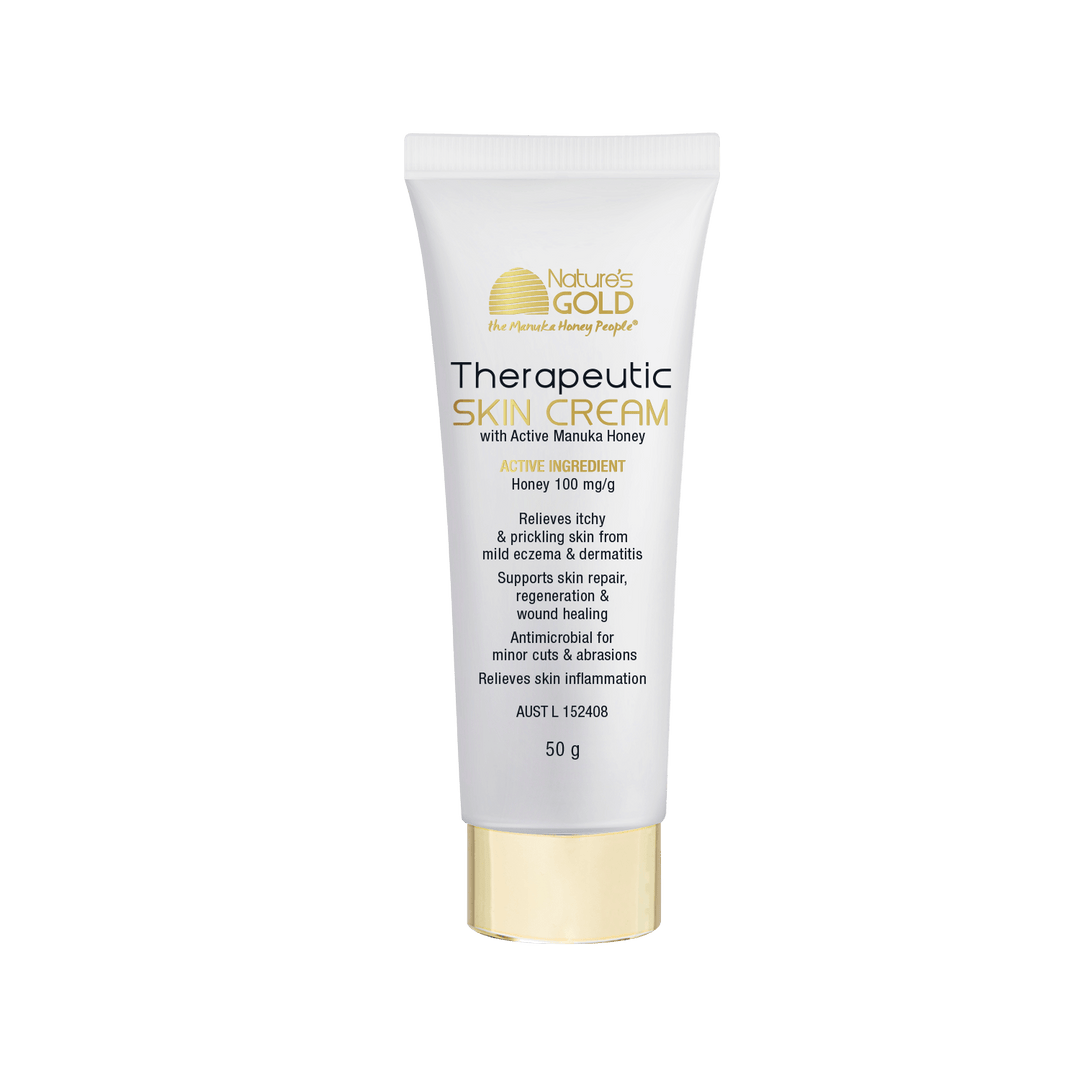
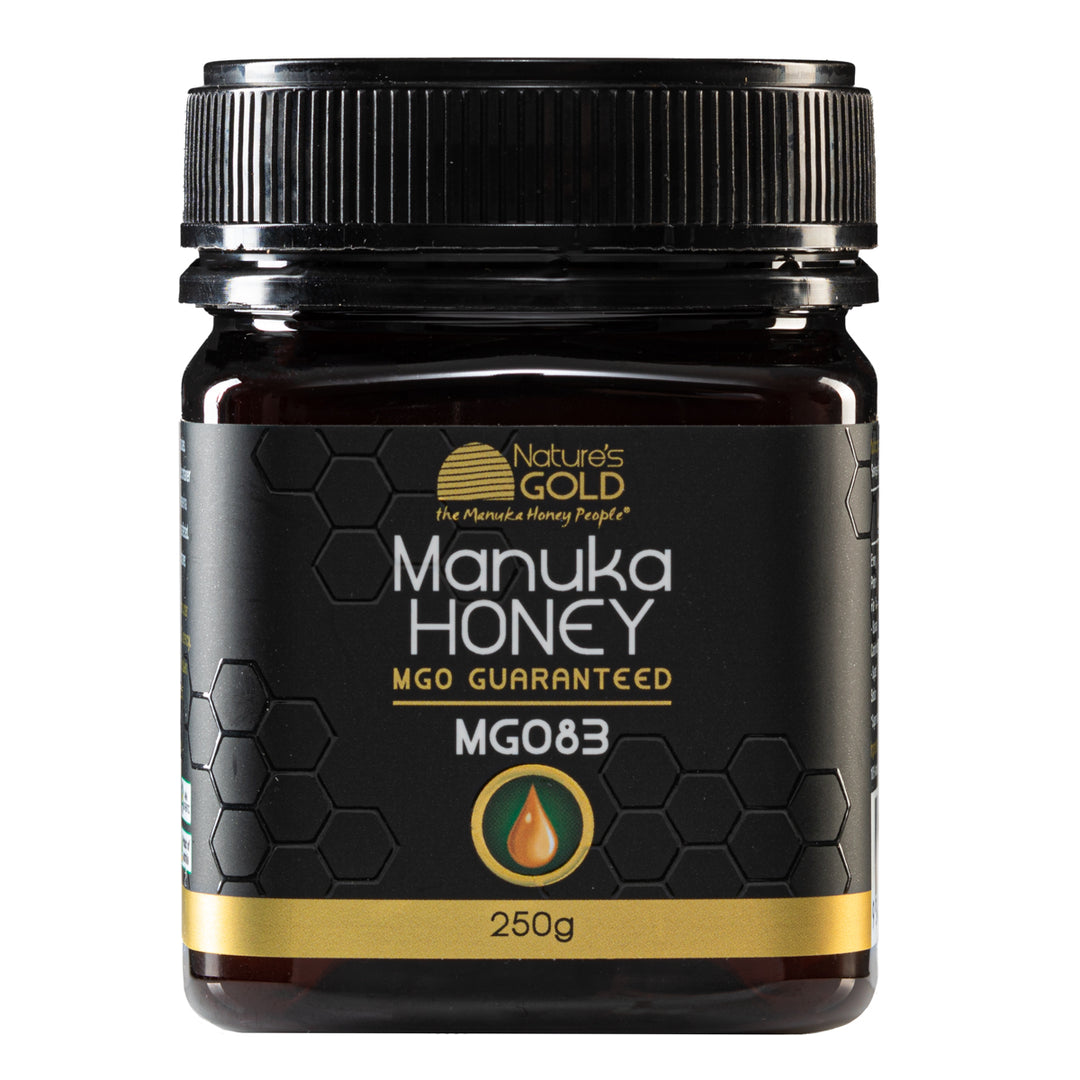
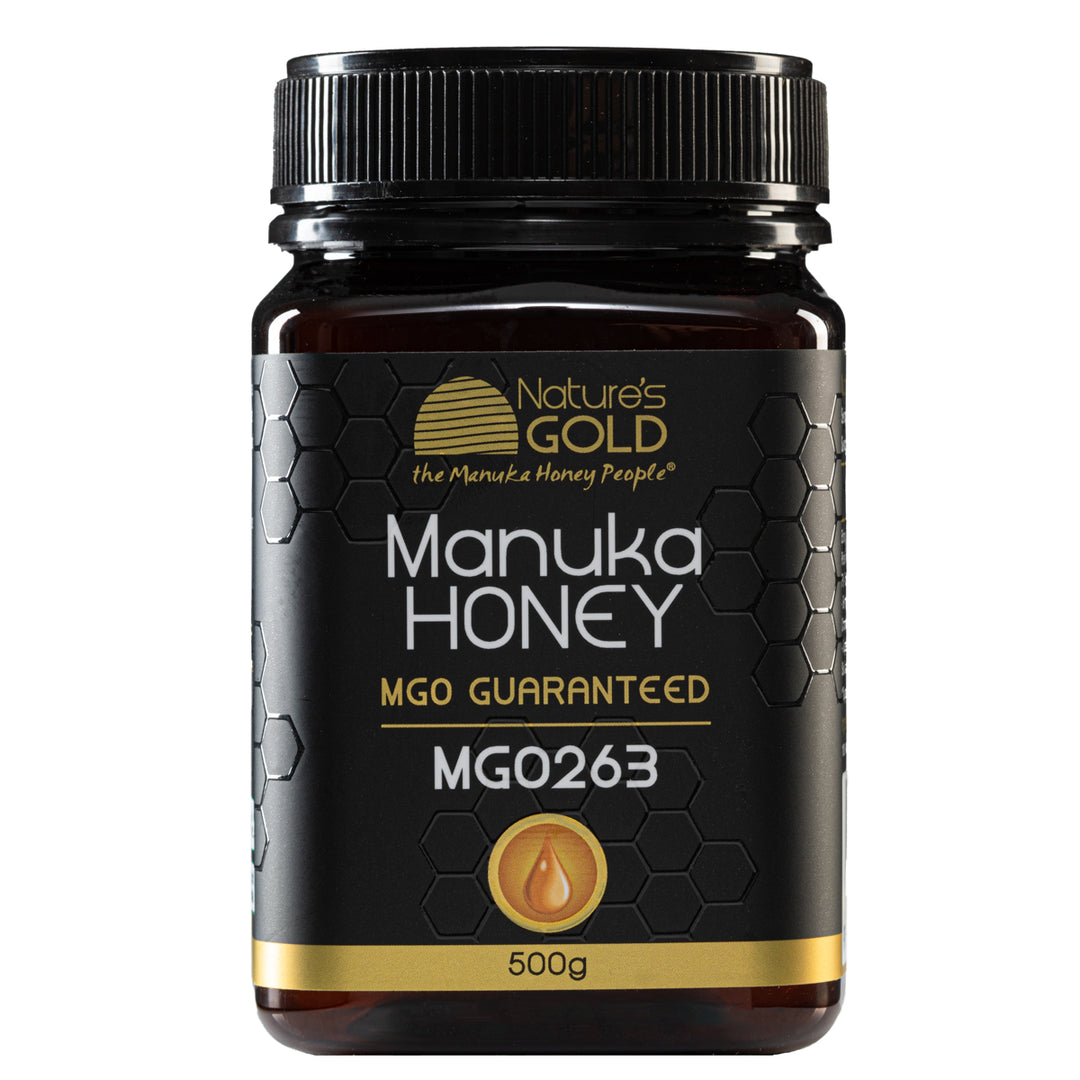
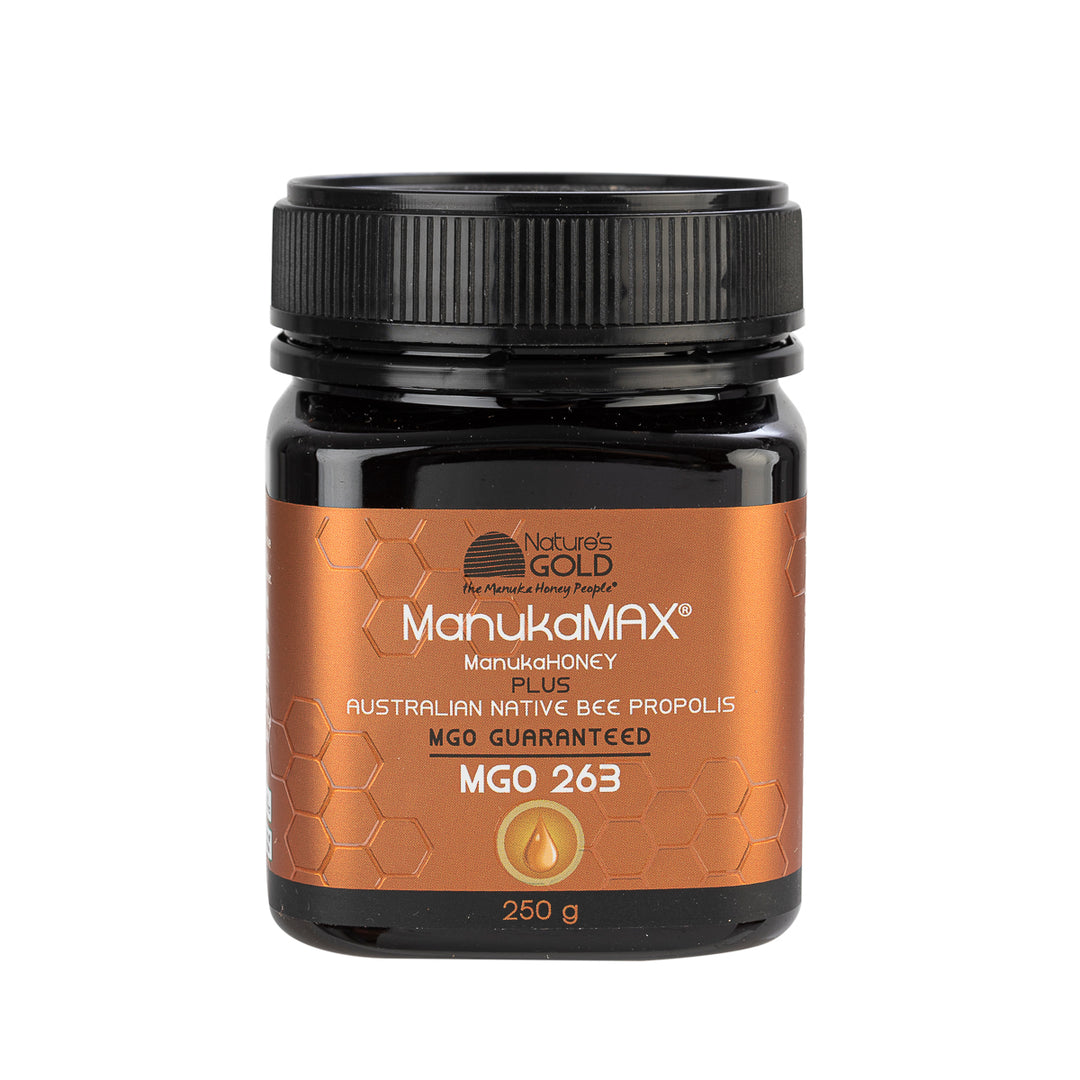
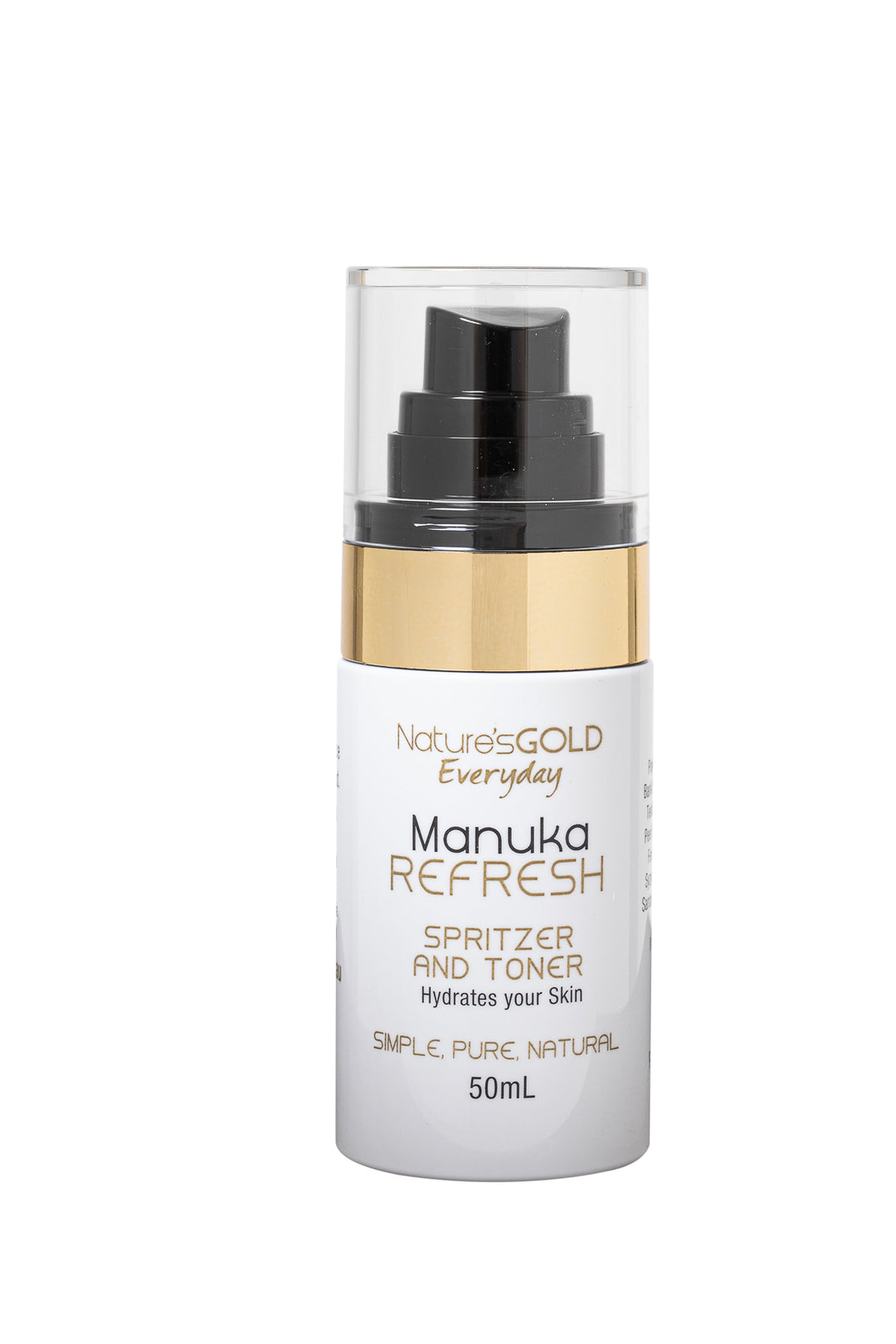



I just received the honey and I love the taste. I find that is not overly sweet which I enjoy but I really love the after taste. I am hoping it will help with the dental plaque
Tinggalkan komen